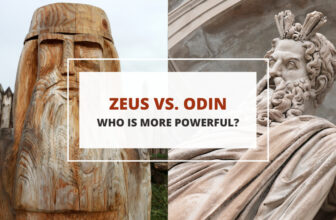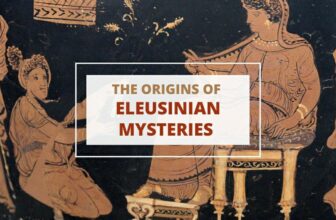Who are Zeus and Hades?
Zeus and Hades are two of the most prominent gods in Greek mythology, ruling over distinct realms and embodying unique traits, myths, and cultural influences.
Zeus is the ruler of Mount Olympus.Hades governs the realm of the dead.Zeus wields the thunderbolt.Hades is associated with wealth and death.Both play vital roles in Greek mythology.
**Zeus** and **Hades** are two of the most prominent gods in Greek mythology, each ruling over distinct domains and embodying unique traits, myths, and cultural influences. Below is a structured comparison and overview:
Zeus vs Hades: Who are They?
Zeus: The King of the Gods
Zeus is the ruler of Mount Olympus and the supreme god in Greek mythology. His primary symbols are the thunderbolt, eagle, and oak. Zeus is the youngest son of Cronus and Rhea. After defeating the Titans alongside his brothers, he became the god of the sky and the heavens. Zeus wields extensive powers including control over weather, law, order, and fate. As king, he maintains authority over gods and mortals alike.
Hades: The God of the Underworld
Hades governs all that lies below the earth, mostly the realm of the dead, but also subterranean wealth such as metals and gems. He is often depicted with symbols like the bident (two-pronged fork), the helm of darkness, and the cerberus (three-headed dog). Eldest son of Cronus and Rhea in some traditions, Hades is less present among the Olympians as he rarely leaves his domain. Hades is associated with both death and material wealth, which is reflected in his alternate title Plouton (“the Wealthy”).
Mythological Stories of Zeus and Hades
Legendary Tales Featuring Zeus
Zeus appears in numerous myths: his defeat of Cronus, his roles in the Titanomachy, and myriad adventures with mortals and gods. Notable myths include his transformation to win over Europa, the birth of Athena from his head, and his arbitration in divine disputes. Zeus often intervenes in mortal affairs, using both disguise and his thunderbolt to influence outcomes.
Myths of Hades
Hades's most significant myth is his abduction of Persephone, which explains the changing seasons. Although seen as stern and inexorable, Hades is rarely depicted as evil. He enforces the natural order of life and death and is steadfast in his duty. Hades occasionally interacts with other gods, such as negotiating with Zeus and Demeter over Persephone’s fate.
Cultural Impact of Zeus and Hades
Zeus appears in countless modern works such as film, literature, and video games, typically as a supreme deity.
Hades’s image has evolved to a more nuanced, sometimes sympathetic character in modern adaptations.
- Zeus symbolizes authority and justice.
- Hades embodies the inevitability of death.
- Both influence modern storytelling and media.
- Explore themes of life, death, and power.
Zeus vs Hades: Personality and Powers
The Personality of Zeus
Zeus is authoritative, commanding, and sometimes capricious but maintains order among gods and men. His leadership is characterized by divine justice—rewarding loyalty and punishing hubris.
The Nature of Hades
Hades is reserved, just, and unwavering. He is less emotionally volatile than Zeus, ruling through necessity and custom rather than charisma or force. Hades’s role as ruler of the underworld is solitary; he is feared but respected rather than beloved, and his domain is essential for the balance of the cosmos.
Cultural Impact of Zeus and Hades
Zeus in Modern Culture
Zeus appears in countless modern works—film, literature, video games, and pop culture—typically as the archetype of a supreme deity or a powerful, paternal figure. His symbolism is often associated with authority, leadership, and justice.
Hades in Pop Culture
Hades’s image has evolved from a remote ruler of the dead to a more nuanced, sometimes sympathetic character in movies, TV shows, and games. Recent portrayals emphasize his complexity and motivations, often exploring themes of death, fate, and wealth.
Conclusion
Zeus and Hades are both sons of Cronus and Rhea, but rule radically different domains: Zeus governs the heavens and Olympus as a charismatic leader, embodying power and order, while Hades rules the underworld, embodying justice, inevitability, and the wealth of the earth.
Key differences:
- Zeus is widely worshiped and admired; Hades, though necessary, is more feared than loved.
- Zeus's myths focus on leadership and interaction with mortals and gods; Hades's myths are more about the afterlife and the inevitability of death.
- Both have had a lasting impact, shaping modern representations of authority (Zeus) and the afterlife (Hades).
Similarities:
- Both are necessary for cosmic order.
- Both wield great power and are children of the same parents, having played vital roles in the post-Titanic age of myth.
Our Sponsors
We are grateful for the support of our prestigious sponsors who make our exploration of mythology possible.

Hecate's Wheel

Zeus vs Odin

Manifesting Soulmate

Sagittarius Sign
Related Articles

Persephone and the Underworld
Dive into the story of Persephone’s abduction and its impact on the seasons.
- Persephone's role in Greek mythology.
- The impact of seasons in ancient Greece.
- Hades and Persephone's relationship.
- The symbolism of the underworld.

The Eleusinian Mysteries
Explore the origins and significance of one of the ancient world's greatest mysteries.
- Eleusinian rites and rituals.
- Demeter and Persephone's significance.
- Impact on Greek religion.
- Cultural influences of the mysteries.
Latest News
Updates from the World of Mythology
New Discoveries in Greek Mythology
2025-08-01
Recent archaeological finds shed light on lesser-known Greek deities and their worship.
Hades in Modern Media
2025-07-15
The video game 'Hades' continues to gain popularity for its unique storytelling and depth.
Revival of Ancient Myths
2025-06-28
Ancient Greek myths are being revived in contemporary literature and cinema, resonating with modern audiences.






